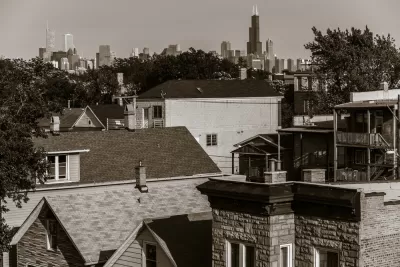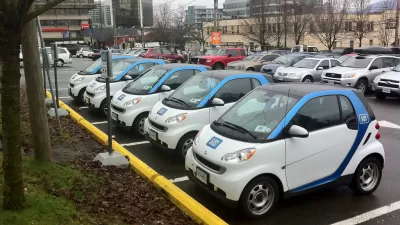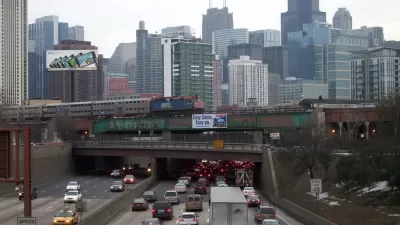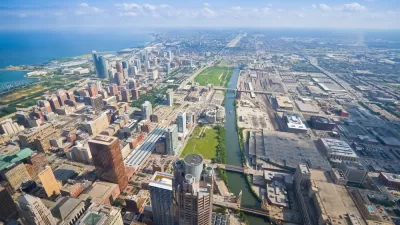Latino Chicagoans are more likely to live in diverse neighborhoods than whites or blacks do.

Chicagoans of all ethnicities tend to live in more segregated neighborhoods than they say they would like to, according to research from a study by Kasey Henricks and Amanda Lewis titled "A Tale of Three Cities: The State of Racial Justice in Chicago."
"Whites, blacks and Latinos all describe their ideal as a neighborhood where their own racial or ethnic group is less than half the population," Dennis Rodkin writes for Crain's, but Chicagoans from all three groups are likely to live in neighborhoods where their ethnicity represents the majority. According to Hendricks and Lewis' research the average white Chicagoans live in neighborhoods that are 74 percent white.
"In Cook County, affluent black people are more likely to live near poor blacks than near white people of their income level—or any income level—according to a new study from the University of Illinois at Chicago," Rodkin writes to explain more of the report's findings.
FULL STORY: Wealthy blacks just as likely to be segregated as poor here

Alabama: Trump Terminates Settlements for Black Communities Harmed By Raw Sewage
Trump deemed the landmark civil rights agreement “illegal DEI and environmental justice policy.”

Study: Maui’s Plan to Convert Vacation Rentals to Long-Term Housing Could Cause Nearly $1 Billion Economic Loss
The plan would reduce visitor accommodation by 25% resulting in 1,900 jobs lost.

Planetizen Federal Action Tracker
A weekly monitor of how Trump’s orders and actions are impacting planners and planning in America.

Waymo Gets Permission to Map SF’s Market Street
If allowed to operate on the traffic-restricted street, Waymo’s autonomous taxis would have a leg up over ride-hailing competitors — and counter the city’s efforts to grow bike and pedestrian on the thoroughfare.

Parklet Symposium Highlights the Success of Shared Spaces
Parklets got a boost during the Covid-19 pandemic, when the concept was translated to outdoor dining programs that offered restaurants a lifeline during the shutdown.

Federal Homelessness Agency Places Entire Staff on Leave
The U.S. Interagency Council on Homelessness is the only federal agency dedicated to preventing and ending homelessness.
Urban Design for Planners 1: Software Tools
This six-course series explores essential urban design concepts using open source software and equips planners with the tools they need to participate fully in the urban design process.
Planning for Universal Design
Learn the tools for implementing Universal Design in planning regulations.
Caltrans
Smith Gee Studio
Institute for Housing and Urban Development Studies (IHS)
City of Grandview
Harvard GSD Executive Education
Toledo-Lucas County Plan Commissions
Salt Lake City
NYU Wagner Graduate School of Public Service





























